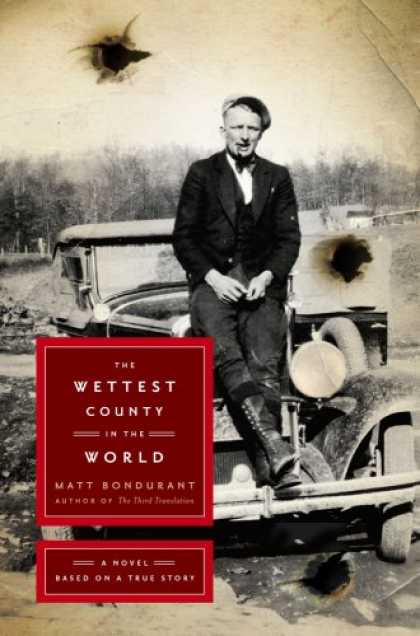This is why doing allegory well is hard: Your story actually has to work at a second level without shattering the viewer’s suspension of disbelief on the first level. Throughout the movie, you get the sense that the authors have decided that if it works symbolically, it doesn’t need to make sense narratively.
Julian Sanchez, Link
There was a lot wrong with Prometheus. Unfortunately I've been collecting these quotes since June and my anti-Prometheus steam has run out. But basically, what Julian said. Symbolism is well and good, but if the narrative doesn't make sense then what are you even doing. (See also Monks Flying Spaceships, A Canticle for Leibowitz).
We are devolving into a nation of people who wear their lack of concern for fellow human beings as a badge of honor. Too many people are looking for ways to justify their disdain for others, and too many news organizations are fanning the flames of such discourse.
Commenter Helane Carswell, Link
There will always be non-readers, bad readers, lazy readers – there always were. Reading is a majority skill but a minority art. Yet nothing can replace the exact, complicated, subtle communion between absent author and entranced, present reader.
Julian Barnes, Link
From "Existentially-Fraught Takes On Classic Picture Books To Teach Your Kids The Meaningless Of Life Before The Internet Does":
Brown Bear, Brown Bear, You Are F-cked
Set in a dystopian future in which animals can access the internet, Brown Bear, Brown Bear, You Are F-cked tells the tale of Brown Bear, whose exorbitant internet usage gives way to his development of extremely niche tastes in music, film, literature, and food. Relating to other bears becomes increasingly difficult and tiring. He makes ‘internet bear friends’ who are moderately interested in the same kinds of media to compensate for the IRL friends he has alienated.
Brown Bear slowly gains more and more internet friendships with bears all over the globe until he stops speaking with IRL bears completely, adopts ‘freeganism,’ and relocates to a remote, sealed-off, wifi-accessible cave in Vermont, where he can comment on blogs, refresh his Facebook feed, and discover new music on Spotify uninterrupted. He slowly loses track of the days, weeks, and months, and then he dies, leaving behind his earthly possesions: several parody Twitter accounts portraying various other woodland animals and a Blogspot.
Karim Kazemi, Link
Hahhahhaahaha...oh I'm sad now.
From Italo Calvino's If on a Winter's Night a Traveler:
In the shop window you have promptly identified the cover with the title you were looking for. Following this visual trail, you have forced your way through the shop past the thick barricade of Books You Haven’t Read, which were frowning at you from the tables and shelves, trying to cow you. But you know you must never allow yourself to be awed, that among them there extend for acres and acres the Books You Needn’t Read, the Books Made For Purposes Other Than Reading, Books Read Even Before You Open Them Since They Belong To The Category Of Books Read Before Being Written. And thus you pass the outer girdle of ramparts, but then you are attacked by the infantry of the Books That If You Had More Than One Life You Would Certainly Also Read But Unfortunately Your Days Are Numbered. With a rapid maneuver you bypass them and move into the phalanxes of the Books You Mean To Read But There Are Others You Must Read First, the Books Too Expensive Now And You’ll Wait Till They’re Remaindered, the Books ditto When They Come Out In Paperback, Books You Can Borrow From Somebody, Books That Everybody’s Read So It’s As If You Had Read Them, Too. Eluding these assaults, you come up beneath the towers of the fortress, where other troops are holding out:
the Books You’ve Been Planning To Read For Ages,
the Books You’ve Been Hunting For Years Without Success,
the Books Dealing With Something You’re Working On At The Moment,
the Books You Want To Own So They’ll Be Handy Just In Case,
the Books You Could Put Aside Maybe To Read This Summer,
the Books You Need To Go With Other Books On Your Shelves,
the Books That Fill You With Sudden, Inexplicable Curiosity, Not Easily Justified.
(and so on.)
via Flavorwire, Link
I’m not going to have others deciding what I want to read. I mean that would be almost anti-literature. I couldn’t read something just to say I’ve read it. That would be like picking your college major because your parents want you to be like a landscape architect or something. I mean only about 20% or something of people even have a college degree. The entire point is to select your occupation, to attempt to create your destiny, and you’re just going to toss it away? You’re just going to abdicate free will? Fuck that. I’m not reading a damn thing for others. That would be death.
Sean Lovelace, Link
My mother doesn’t understand that there’s a Linksys WRT54G Router inside her home, grimly installed by my father at 5:00 a.m. one morning while she was still getting her beauty sleep in. She touches her iPad with tiny soft fingers, hitting “forward” in her email on all-things-annoying to this contributor and her only son. Now and then she gets kicked off the wi-fi network — however endearing the password named after her by my father, whose displays of love are limited in such I.T. manners — and, when I happen to be around one weekend, tells me to fix the internet. I explain to her that it’s either the router or Comcast, and that I can only help with the former. That the internet cannot be fixed, due to teens. “The internet,” she repeats.
Jimmy Chen, Link

